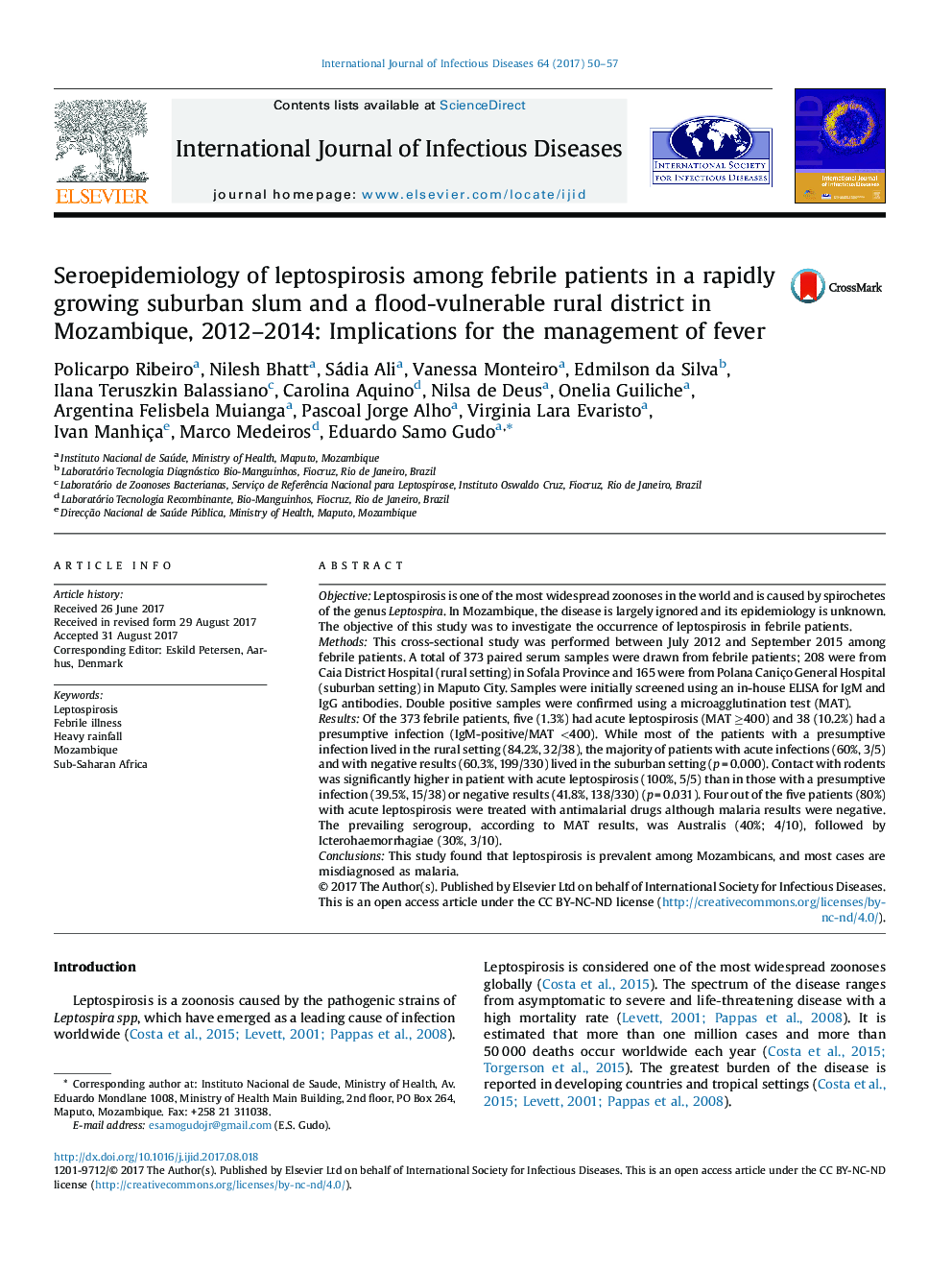| Article ID | Journal | Published Year | Pages | File Type |
|---|---|---|---|---|
| 5667268 | International Journal of Infectious Diseases | 2017 | 8 Pages |
ObjectiveLeptospirosis is one of the most widespread zoonoses in the world and is caused by spirochetes of the genus Leptospira. In Mozambique, the disease is largely ignored and its epidemiology is unknown. The objective of this study was to investigate the occurrence of leptospirosis in febrile patients.MethodsThis cross-sectional study was performed between July 2012 and September 2015 among febrile patients. A total of 373 paired serum samples were drawn from febrile patients; 208 were from Caia District Hospital (rural setting) in Sofala Province and 165 were from Polana Caniço General Hospital (suburban setting) in Maputo City. Samples were initially screened using an in-house ELISA for IgM and IgG antibodies. Double positive samples were confirmed using a microagglutination test (MAT).ResultsOf the 373 febrile patients, five (1.3%) had acute leptospirosis (MAT â¥400) and 38 (10.2%) had a presumptive infection (IgM-positive/MAT <400). While most of the patients with a presumptive infection lived in the rural setting (84.2%, 32/38), the majority of patients with acute infections (60%, 3/5) and with negative results (60.3%, 199/330) lived in the suburban setting (p = 0.000). Contact with rodents was significantly higher in patient with acute leptospirosis (100%, 5/5) than in those with a presumptive infection (39.5%, 15/38) or negative results (41.8%, 138/330) (p = 0.031). Four out of the five patients (80%) with acute leptospirosis were treated with antimalarial drugs although malaria results were negative. The prevailing serogroup, according to MAT results, was Australis (40%; 4/10), followed by Icterohaemorrhagiae (30%, 3/10).ConclusionsThis study found that leptospirosis is prevalent among Mozambicans, and most cases are misdiagnosed as malaria.
